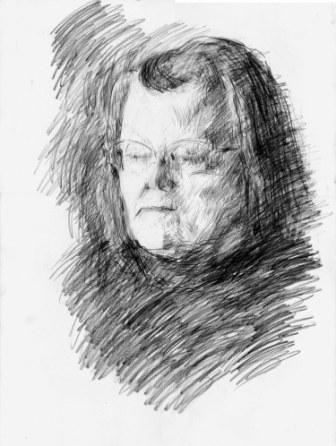Over the phone Bill and I were discussing with our son the problem of using “their” instead of “his” with a singular noun: “a writer expects their pencil to be sharp.” We got to discussing the advantages of speaking a language with non-gender gender (there is a technical term for this but I forget it), for example, that a bridge is either masculine or feminine. A scholar has conducted a study to see if this use of gender affects the way the people speaking the language view the object. She (for she was really a she) asked Spaniards how they would describe a bridge, and they would reply with an adjective that could apply to a woman: graceful, for example. A German would use a word that would apply to a man: solid. She was about to begin a study to see if the actual structures of bridges differed between Germany and Spain.
A Dutch friend told us that many years ago the king of Holland unilaterally declared that the Dutch language would no longer make non-gender objects have gender. His father, a scholar and a gentleman, was very upset with this.
Friday, January 12, 2007
Subscribe to:
Post Comments (Atom)

2 comments:
I'm wondering if by "...a language with non-gender gender (there is a technical term for this but I forget it)..." you were thinking of 'epicene' or possibly 'neuter' nouns?
I slipped this one into the nanowrimo novel. Thee, thim, thir, to denote a person not he/she, him/her, his/hers. Not sure how it reads, but I keep wanting to use it in life, and stopping myself because no one will get it.
Post a Comment